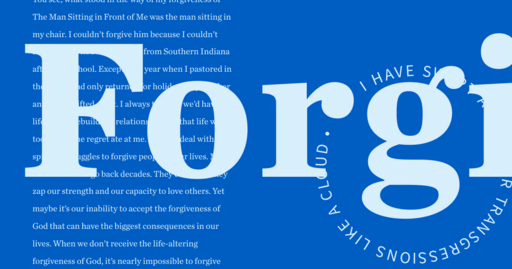I was staring at the back of The Man Sitting in Front of Me, the one who killed my little brother. First my sister, then my niece, stood and told the man what his act had taken from us.
The murder had been vicious. My not quite thirty-eight-year-old little brother (who had been a couple of heads taller than me since we were teenagers) had a lifetime in front of him—except that The Man Sitting in Front of Me in that courtroom had ended it.
The young man, my brother, who had adopted another man’s daughter and loved her sacrificially as his own years after his relationship with her mother ended would never walk my niece down the aisle.
I knew the right thing to do was to forgive this murderer. I had heard the sermons on forgiveness. I had preached those sermons. I could quote Bible verses on the topic.
Yet during those moments in that Southern Indiana courtroom, I realized it was an entirely different act to forgive rather than understand forgiveness.
You see, what stood in the way of my forgiveness of The Man Sitting in Front of Me was the man sitting in my chair. I couldn’t forgive him because I couldn’t forgive me. I had moved away from Southern Indiana after high school. Except for a year when I pastored in the area, I had only returned for holidays. My brother and I had drifted apart. I always thought we’d have a lifetime to rebuild the relationship, but that life was too short. The regret ate at me.
All of us deal with spiritual struggles to forgive people in our lives. Many of those battles go back decades. They eat at us. They zap our strength and our capacity to love others.
Yet maybe it’s our inability to accept the forgiveness of God that can have the biggest consequences in our lives. When we don’t receive the life-altering forgiveness of God, it’s nearly impossible to forgive others.
Every person in your congregation has come to a point in life where they’ve had to wrestle with forgiveness. The good news is the Bible is a smorgasbord of rich nourishment for those starving for forgiveness. As a church leader, you get an opportunity to open up God’s word and help people discover what God wants to tell them about this all-important topic.
In this blog post, I want to help. I’ve gathered Scriptures, biblical terms, quotes, prayers, and sermon outlines to help you the next time you get the chance to serve people who need to hear from God about forgiveness.
- Verses about God’s forgiveness
- Bible verses about forgiving others
- Biblical passages that teach forgiveness
- Questions often asked about forgiveness
- Sermon quotes about forgiveness
- Prayers for forgiveness
- Forgiveness sermon outlines
- Preparing to teach or preach on forgiveness
Verses about God’s forgiveness
All Bible verses are taken from the Christian Standard Bible.
The Lord is slow to anger and abounding in faithful love, forgiving iniquity and rebellion. But he will not leave the guilty unpunished, bringing the consequences of the fathers’ iniquity on the children to the third and fourth generation. Please pardon the iniquity of this people, in keeping with the greatness of your faithful love, just as you have forgiven them from Egypt until now. (Num 14:18–19)
David said to God, “I have sinned greatly because I have done this thing. Now, please take away your servant’s guilt, for I’ve been very foolish. (1 Chr 21:8)
If I shut the sky so there is no rain, or if I command the grasshopper to consume the land, or if I send pestilence on my people, and my people, who bear my name, humble themselves, pray and seek my face, and turn from their evil ways, then I will hear from heaven, forgive their sin, and heal their land. (2 Chr 7:13–14)
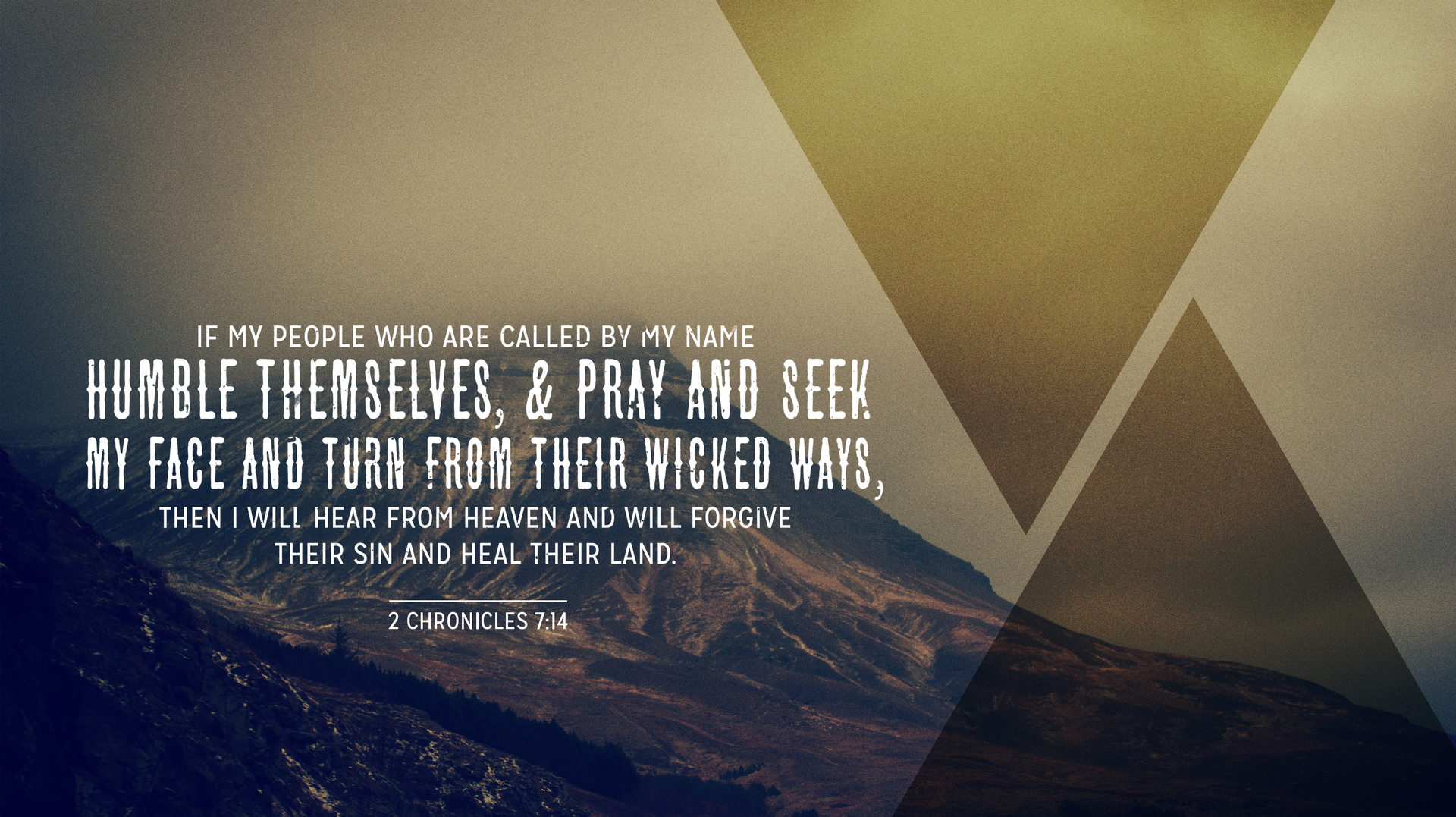
Who perceives his unintentional sins? Cleanse me from my hidden faults. (Ps 19:12)
Lord, for the sake of your name, forgive my iniquity, for it is immense. (Ps 25:11)
Consider my affliction and trouble, and forgive all my sins. (Ps 25:18)
How joyful is the one whose transgression is forgiven, whose sin is covered! (Ps 32:1)
Be gracious to me, God, according to your faithful love; according to your abundant compassion, blot out my rebellion. (Ps 51:1)
Turn your face away from my sins and blot out all my guilt. (Ps 51:9)
Lord, you showed favor to your land; you restored the fortunes of Jacob. You forgave your people’s guilt; you covered all their sin. Selah You withdrew all your fury; you turned from your burning anger. (Ps 85:1–3)
The one who conceals his sins will not prosper, but whoever confesses and renounces them will find mercy. (Prov 28:13)
I have swept away your transgressions like a cloud, and your sins like a mist. Return to me, for I have redeemed you. (Isa 44:22)
So when I tell the wicked person, “You will surely die,” but he repents of his sin and does what is just and right—he returns collateral, makes restitution for what he has stolen, and walks in the statutes of life without committing injustice—he will certainly live; he will not die. None of the sins he committed will be held against him. He has done what is just and right; he will certainly live. (Ezek 33:14–16)
Therefore, our God, hear the prayer and the petitions of your servant. Make your face shine on your desolate sanctuary for the Lord’s sake. Listen closely, my God, and hear. Open your eyes and see our desolations and the city that bears your name. For we are not presenting our petitions before you based on our righteous acts, but based on your abundant compassion. Lord, hear! Lord, forgive! Lord, listen and act! My God, for your own sake, do not delay, because your city and your people bear your name. (Dan 9:17–19)
If I shut the sky so there is no rain, or if I command the grasshopper to consume the land, or if I send pestilence on my people, and my people, who bear my name, humble themselves, pray and seek my face, and turn from their evil ways, then I will hear from heaven, forgive their sin, and heal their land. My eyes will now be open and my ears attentive to prayer from this place. (2 Chr 7:14)
Which is easier: to say to the paralytic, “Your sins are forgiven,” or to say, “Get up, take your mat, and walk”? But so that you may know that the Son of Man has authority on earth to forgive sins—he told the paralytic—“I tell you: get up, take your mat, and go home. (Mark 2:9–11)
And you, child, will be called a prophet of the Most High, for you will go before the Lord to prepare his ways, to give his people knowledge of salvation through the forgiveness of their sins. Because of our God’s merciful compassion, the dawn from on high will visit us to shine on those who live in darkness and the shadow of death, to guide our feet into the way of peace. (Luke 1:76–79)
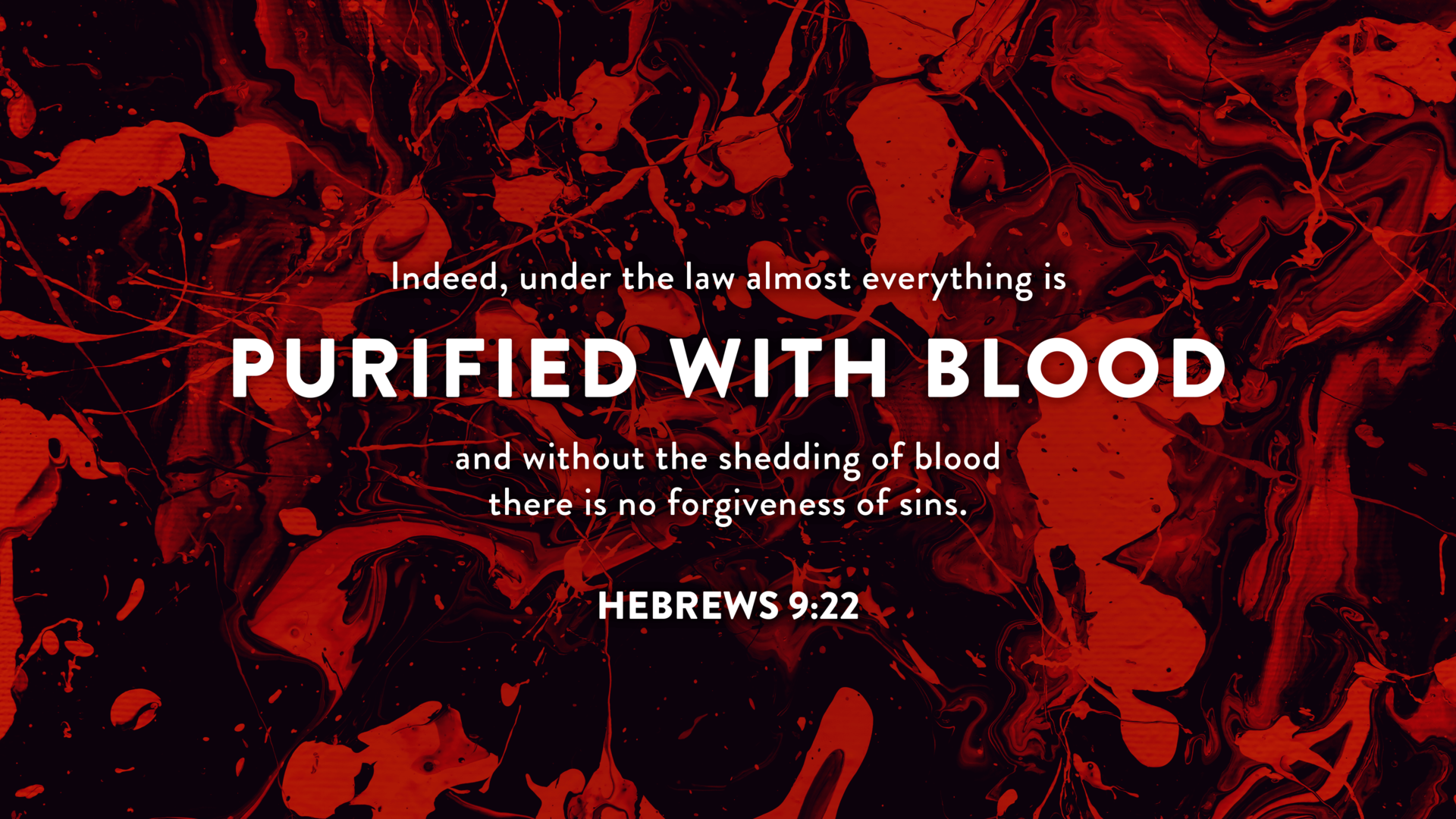
According to the law almost everything is purified with blood, and without the shedding of blood there is no forgiveness. (Heb 9:22)
If we confess our sins, he is faithful and righteous to forgive us our sins and to cleanse us from all unrighteousness. (1 John 1:8–10)
I am writing to you, little children, since your sins have been forgiven on account of his name. (1 John 2:12)
Bible verses about forgiving others
And forgive us our debts, as we also have forgiven our debtors. (Matt 6:12)
For if you forgive others their offenses, your heavenly Father will forgive you as well. But if you don’t forgive others, your Father will not forgive your offenses. (Matt 6:14–15)
And whenever you stand praying, if you have anything against anyone, forgive him, so that your Father in heaven will also forgive you your wrongdoing. (Mark 11:25)
Do not judge, and you will not be judged. Do not condemn, and you will not be condemned. Forgive, and you will be forgiven. (Luke 6:37)
And forgive us our sins, for we ourselves also forgive everyone in debt to us. And do not bring us into temptation. (Luke 11:4)
Be on your guard. If your brother sins, rebuke him, and if he repents, forgive him. And if he sins against you seven times in a day, and comes back to you seven times, saying, ‘I repent,’ you must forgive him. (Luke 17:3–4)
Then Jesus said, “Father, forgive them, because they do not know what they are doing.” And they divided his clothes and cast lots. (Luke 23:34)
If anyone has caused pain, he has caused pain not so much to me but to some degree (not to exaggerate (to all of you. This punishment by the majority is sufficient for that person. As a result, you should instead forgive and comfort him. Otherwise, he may be overwhelmed by excessive grief. (2 Cor 2:5–7)
Anyone you forgive, I do too. For what I have forgiven (if I have forgiven anything (it is for your benefit in the presence of Christ, so that we may not be taken advantage of by Satan. For we are not ignorant of his schemes. (2 Cor 2:10–11)
And be kind and compassionate to one another, forgiving one another, just as God also forgave you in Christ. (Eph 4:32)
Therefore, as God’s chosen ones, holy and dearly loved, put on compassion, kindness, humility, gentleness, and patience, bearing with one another and forgiving one another if anyone has a grievance against another. Just as the Lord has forgiven you, so you are also to forgive. (Col 3:12–13)
Biblical passages that teach forgiveness
As you look to preach and teach on forgiveness, you’ll have a good selection of passages to focus on. Each will allow you to center around a distinct element of this important biblical topic. Here are a few of my favorite passages on the topic, with a quick summary and some thoughts on the specific elements of forgiveness the passage brings out.
- Genesis 33:1–17: The word forgiveness doesn’t show up in the passage, but it’s one of the best stories of interpersonal forgiveness in the entire Bible. Years earlier, Jacob had stolen his brother’s birthright (Gen 25:29–34) and blessing (Gen 27:1–46). The last time Jacob had seen his brother, Esau had promised to kill him (Gen 27:41–45). Jacob expected the worst when he meets his brother again years later. We’re never specifically told that Esau had forgiven his brother; instead, we’re given one of the most emotive scenes demonstrating forgiveness in the Bible. The powerful story of forgiveness is particularly poignant for anyone who has experienced familial estrangement. We only have Jacob’s side of the story, so the story best illustrates the experience of forgiveness rather than the journey of the forgiver.
- Genesis 43–50: Another story within the narrative of the patriarchs, this one involves Joseph (one of Jacob’s twelve sons) and his brothers. Joseph’s brothers had sold him into slavery years earlier. Now they returned and needed food in the middle of a famine. The story, which takes eight chapters to unfold, emphasizes forgiveness from the experience of the forgiver, but it also includes dialogue from the brothers’ perspective. It’s a great story to teach the dynamics of interpersonal forgiveness, particularly related to family dysfunction.
- Exodus 32: The story of the golden calf is another one familiar to most Bible readers. Moses had gone on top of Mount Sinai to receive the Law from God. While he was there, the Israelites built and worshiped a golden calf. God tells Moses he will destroy the Israelites for their disobedience (Exod 32:10). But Moses intercedes for his people, asking God not to destroy them. Moses asks the Lord to: “Turn from your fierce anger and relent concerning this disaster planned for your people” (Exod 32:12). That’s exactly what God does. The Bible says he relents and won’t destroy the Israelites. In some English translation, the verse says that God changes his mind, touching on a potential meaning of the passage that is controversial in some circles. The story highlights God’s forgiveness of human sinfulness. But it also helps us understand the gravity of sin, the power of intercession, and possibly God’s penchant for forgiveness (as described in Ps 86:5).
- Matthew 18:23–35: The parable of the unforgiving servant illustrates one of the most important New Testament themes related to forgiveness: the tie between God’s forgiveness of us and our forgiveness of others. Jesus tells the parable in response to Peter, who wants to know how many times he needs to forgive someone who sins against him. In the story, a servant can’t pay a debt he owes (an amount some say is equivalent to a billion days of wages) to his master. His master says that the servant, his wife, and his children must be sold, along with everything else he owns, to pay the debt. When the servant begs the master to forgive the debt, he does. But then the servant sees a fellow servant who owes him money (a much lower amount). Despite just experiencing forgiveness, the first servant refuses to forgive his debtor. The passage illustrates the absurdity of a Christian’s refusal to forgive. It reminds us of the tie between the horizontal and vertical dimensions of forgiveness.
- Hebrew 10:1–18: The author of Hebrews describes the New Covenant in terms of the Old Covenant in this passage. While it’s not a narrative, it does put readers in the great narrative of Hebrew Scriptures, reminding us of the bloody process of forgiveness in the Old Testament. The writer describes the annual process of sacrificing bulls and goats for the forgiveness of sin, calling it in verse 1 “a shadow of good things to come.” The author then describes Jesus’ once-and-for-all sacrifice for our sin. He writes: “We have been sanctified through the offering of the body of Jesus Christ once for all time” (Heb 10:10). The passage is a great opportunity to tie together forgiveness on either side of the cross. The passage also reminds us of the significant price paid, once-and-for-all, for us by Jesus.
Other passages to consider, include: Psalm 31, Psalm 103, Leviticus 4:1–35, 1 Samuel 25:23—26:25, Matthew 6:9–15, Luke 15:11–32, and 1 John 1:5–2:2.
Questions often asked about forgiveness
I always like to know the questions people are asking related to topics I’m teaching. Those questions will, of course, differ depending upon your ministry context.
Here are a few common questions to think about as you’re preparing to teach—and a few ideas of how you can address them.
1. What does unforgiveness do to a person?
You can address this in different ways. First, when we don’t forgive others, we put our own forgiveness at risk (Matt 6:14–15, Jas 2:12–13). Of course, the parable of the unforgiving servant (Matt 18:21–34) also hits this point. Another angle is to focus on the development of bitterness. Hebrews 12:15 and Ephesians 4:13 both encourage us to avoid bitterness. Ephesians 4:31–32 specifically ties forgiveness to the process of eliminating bitterness.
2. What is the power of forgiveness?
Of course, forgiveness is life-changing. The story of Jacob and Esau is a great example of what forgiveness can look like in a relationship. The only time forgive is used in the story is right before Jacob wrestles with God, and it’s only in anticipation of what Jacob hopes to experience in his relationship with Esau. It still seems clear that Esau had replaced his previous bitterness with forgiveness in how he responded to his brother. Psalm 32:1 describes the forgiven person as blessed. Proverbs 17:9 tells us that love prospers when forgiveness comes. Through his forgiveness of our sin, God “delivered us from the power of darkness” (Col 1:13–14).
3. What does forgiveness really mean?
Dictionaries provide a solidly consistent definition for this term.
- Merriam-Webster’s Collegiate Dictionary—(forgive) to cease to feel resentment against (an offender).
- Pocket Dictionary of Ethics—The process by which a person is released from the consequences of an action against another person or group and restored to a positive relationship to the offended party.
- The Holman Illustrated Bible Dictionary—Term used to indicate pardon for a fault or offense; to excuse from payment for a debt owed.
4. Is forgiveness a choice?
Jesus wouldn’t tell us to forgive if we couldn’t choose to obey (see Mark 11:25). That doesn’t mean it’s easy. It can feel like it’s nearly impossible at times. But the promise the Bible gives us is that we can find the power to forgive within our own forgiveness. Paul writes, “Be kind and compassionate to one another, forgiving one another, just as God also forgave you in Christ” (Eph 4:32). Why can we forgive? Because God has forgiven us through Christ.
Jesus illustrates our ability to choose forgiveness in the parable of the unforgiving servant when he tells the story of a servant who experienced forgiveness but wouldn’t forgive another. Jesus clearly believed the servant had a choice to forgive. The servant faced strong consequences for his poor choice (Matt 18:34–35).
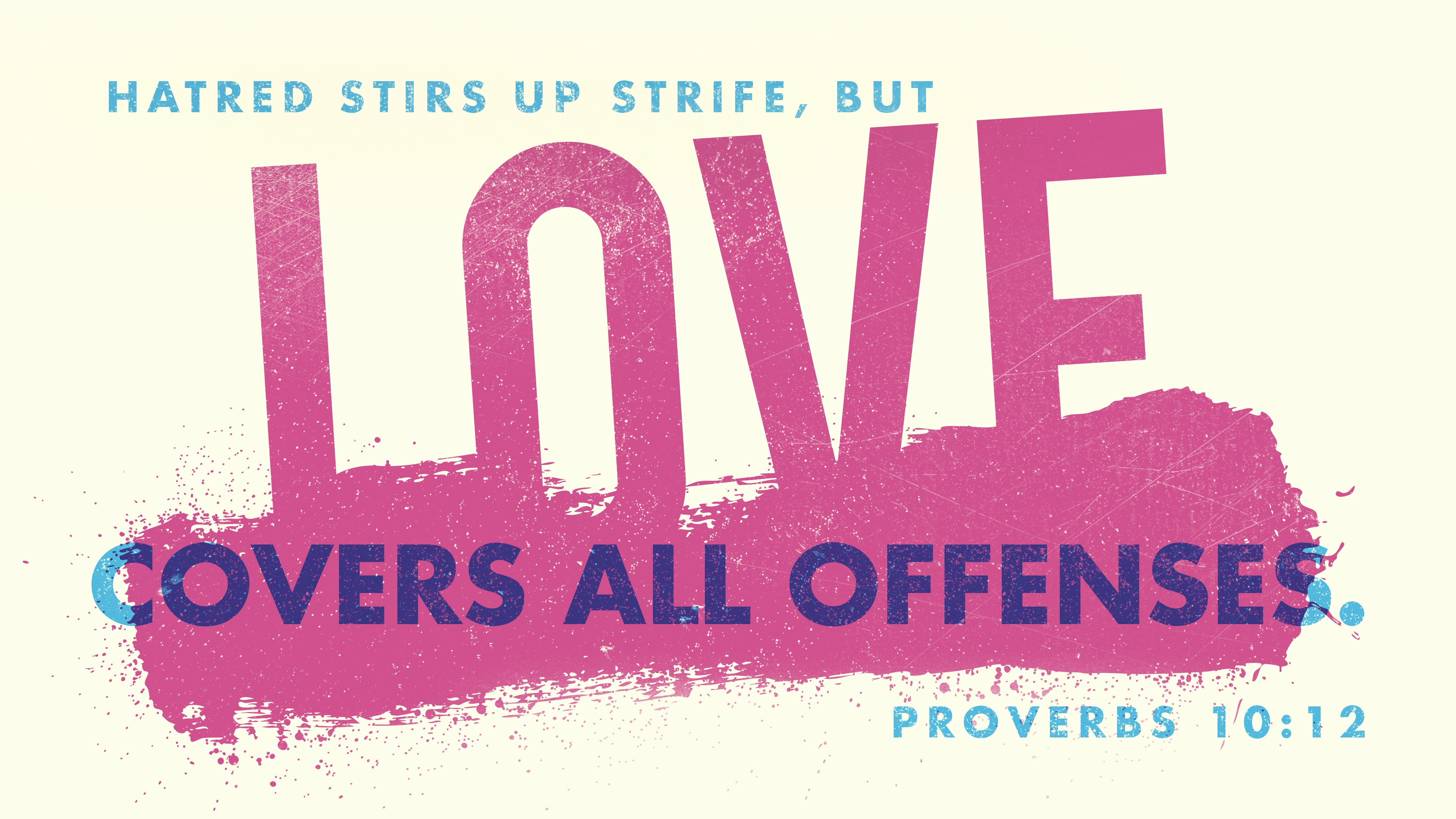
Try sprinkling answers to some of these questions, when appropriate, throughout your sermon. If people are asking the questions, it’s good to let them know that the Bible provides answers for them.
Sermon quotes about forgiveness
Forgiveness liberates the soul. It removes fear. And that is such a powerful weapon!
—Nelson Mandela, in the movie, Invictus (2009)
Nothing causes us to so nearly resemble God as the forgiveness of injuries.
—John Chrysostom
How can we, sinners as we are, despair of pardon, when we think of Jesus Christ? For this very object the Eternal Word humbled himself so far as to take human flesh, that we might procure our pardon from God.
—Alphonsus Liguori
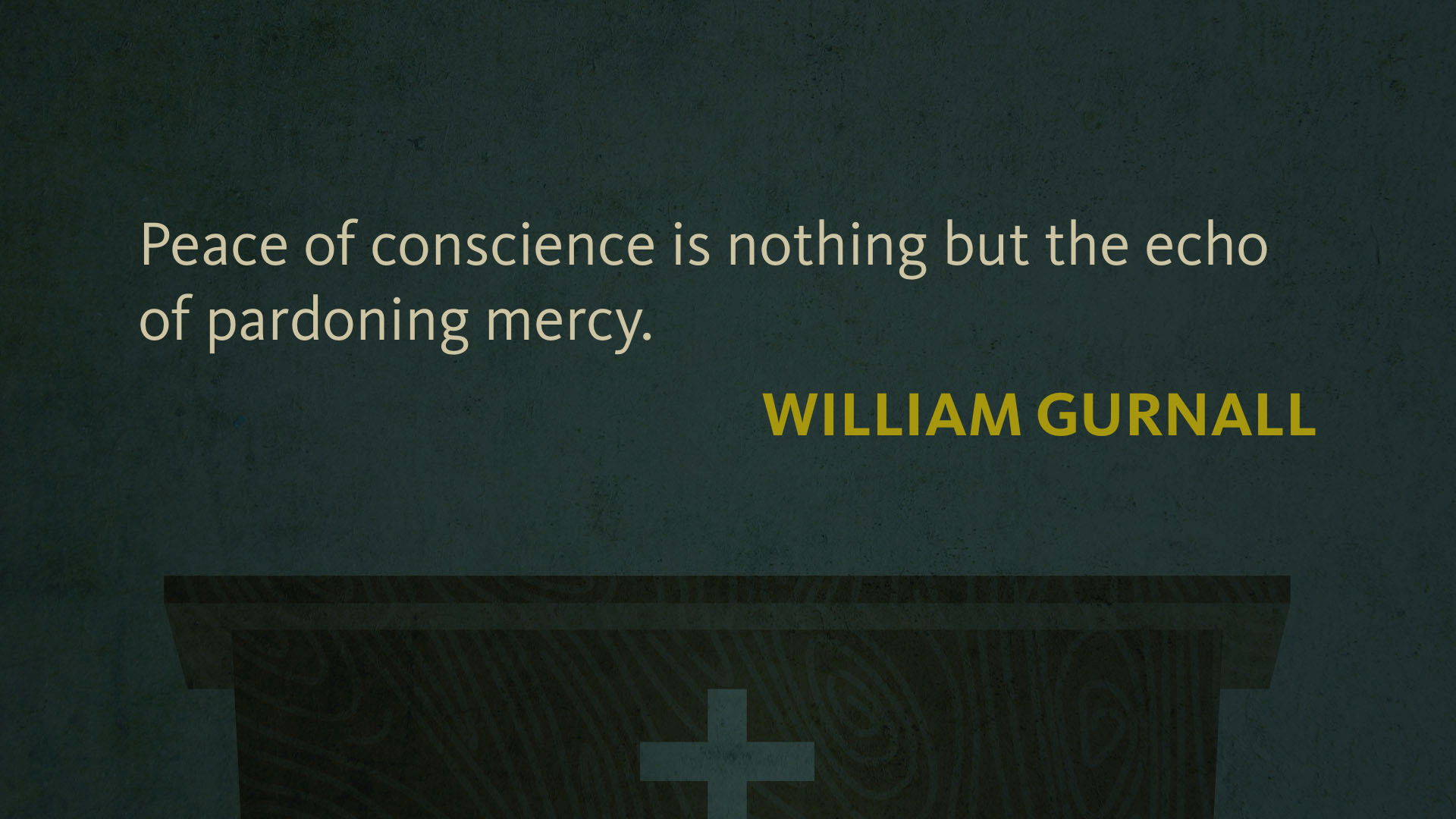
Peace of conscience is nothing but the echo of pardoning mercy.
—William Gurnall
Between us and God we had caused a breach by our sins—and God was the first to apply the remedy. He sends to us his ambassadors to call us, the offenders, back to peace. Let us blush, then, for our pride, and let it cause us shame to think we are unwilling to make amends to our neighbor, seeing that God himself, whom we offended, has come forward in the person of his messengers to ask us to be reconciled to him.
—Hugh of St. Victor
To forgive is to set a prisoner free and discover that the prisoner was you.
—Lewis B. Smedes
Forgiveness is an act of the will, and the will can function regardless of the temperature of the heart.
—Corrie Ten Boom
We must develop and maintain the capacity to forgive. He who is devoid of the power to forgive is devoid of the power to love. There is some good in the worst of us and some evil in the best of us. When we discover this, we are less prone to hate our enemies.
—Martin Luther King Jr.
Our forgiving of others will not procure forgiveness for ourselves, but our not forgiving of others proves that we ourselves are not forgiven.
—John Owen
Prayers for forgiveness
Most merciful God, who according to the multitude of your mercies so puts away the sins of those who truly repent that you remember them no more, open your eye of mercy upon this your servant, who earnestly desires pardon and forgiveness. Create in him a clean heart and renew a right spirit within him, and restore whatever may have been decayed by the snares of Satan or by his own carnal will and frailness. Consider his contrition, accept his tears, assuage his pain, comfort his heart, as shall seem to you most expedient for him. And since he trusts only in the righteousness and promise of your Son Jesus Christ, do not impute unto him his former sins, but accept him as righteous in your sight, and strengthen and endue him plenteously with every grace by your blessed Spirit. And when you are pleased to take him hence, take him into your favor, through the merits of your most dearly beloved Son, Jesus Christ, our Lord. Amen.
—A. A. Hodge
Oh Lord, our chief desire this morning before you is to be right with you. Oh make us right with you, great Father. There are some in your presence who are not right with you at all; your countenance they cannot behold, and you cannot accept their offering; for it is true of them, as of Cain, “sin lies at the door.” Oh God roll every sin away; but we know they must first feel the burden of it, they must come to you and confess it, they must accept the great substitute and rest in Jesus. And our prayer shall be, Father, if our sin is not forgiven, we would put our head into your bosom and sob out, “Father, I have sinned against heaven and before you, and am no more worthy to be called your son.
Grant the kiss of forgiveness to each of your children this morning, and may we feel that you are faithful and just to forgive us our sins, and to cleanse us from all unrighteousness; and in the joy of this, may we feel peace with you.
—Charles Spurgeon
Lord Jesus,
You opened the eyes of the blind,
healed the sick,
forgave the sinful woman,
and after Peter’s denial confirmed him in your love.
Listen to my prayer:
forgive all my sins,
renew your love in my heart,
help me to live in perfect unity
with my fellow Christians
that I may proclaim your saving power
to all the world.— Unknown
Father in Heaven!
Hold not our sins up against us
But hold us up against our sins
So that the thought of You when it wakens in our soul, and each time it wakens,
Should not remind us of what we have committed
But of what You did forgive;
Not of how we went astray but of how You did save us!—Søren Kierkegaard
Don’t remember my sins, Lord;
Please forget the mistakes in my past.
Blot out the memory of my rebellion from you;
Since you are completely good,
See my imperfection only through the filter of your love.—Martin Saunders, 500 Prayers for Young People: Prayers for a New Generation (Based on Psalm 25)
Forgiveness sermon outlines
Title: The Power of Forgiveness
Text: Psalm 32:1–5
- Recognize the pain of unconfessed sin. (Ps 32:3–4)
- It makes us miserable. (Ps 32:3)
- It saps us of power. (Ps 32:4)
- Forgiveness Illustration: A 2011 Barna survey noted 70 million Americans feel as if something in their past is holding them back. People all around us are weighed down by sin.
- Confess your sin to God. (Ps 32:5)
- God knew of the psalmist’s sin, but he had to acknowledge it.
- The Bible says if we confess our sin, God is faithful to forgive us. (1 John 1:9)
- Experience joy as a result of forgiveness. (Ps 32:1)
- Paul recognized the joy of forgiveness. He quotes this verse. (Rom 4:7–8)
- This message of the joy of forgiveness is the gospel the early church proclaimed— and fueled its mission. (Acts 13:38)
- That forgiveness—the one that brought joy to David and Paul—is available to you. (Acts 10:43)
Title: The Cost of Not Forgiving
Text: Matthew 18:23–35
- Realize the depth of God’s forgiveness. (Matt 18:23–27)
- The Parable of the Unforgiving Servant is a negative-example story. It demonstrates the way not to respond to the gift of God’s forgiveness.
- The first servant owed what he could not pay. The ten thousand talents were equivalent to a billion days of a peasant’s wages (CSB Study Bible Notes).
- His debt would cost him everything he considered dear (including his wife and children).
- We all have a sin debt we can’t pay. (Rom 3:23)
- Like the king in Jesus’ story, God paid our debt with the life of his son. (Rom 5:8)
- Recognize unforgiveness in your life. (Matt 18:23–27)
- The second servant only owed about a hundred days of wages, which is minuscule compared to what the first servant owed.
- The second servant’s begging and request for patience didn’t move the first servant. (Matt 18:30)
- When we don’t truly understand God’s forgiveness, our hearts will grow hard toward others. (Rom 2:1–5)
- Respond to God’s forgiveness. (Matt 18:31–35)
- The king discovered the servant’s unforgiveness. God sees our unforgiveness. (Matt 18:31)
- There are consequences for our unforgiveness. (Matt 18:34, 6:15)
- We must respond to God’s forgiveness by forgiving those who have hurt us. (Matt 6:12)
Preparing to preach or teach on forgiveness
Serving others who are struggling with God’s forgiveness and their ability to forgive others is an amazing privilege. As you prepare for this opportunity, spend some time with God dealing with your own heart. Ask God to help you dig deep into what his grace has meant for you. Then ask him to point out people in your life you need to forgive.
Because it’s such an important topic, make sure that God has prepared your heart before you share God’s Word with others.

